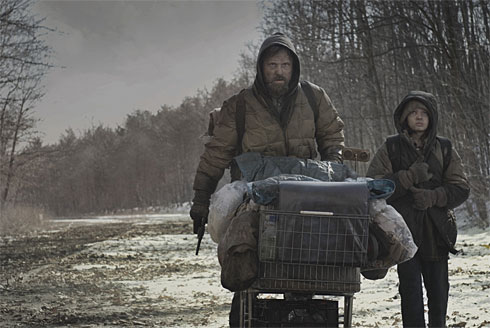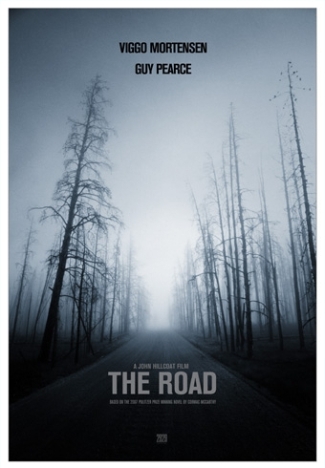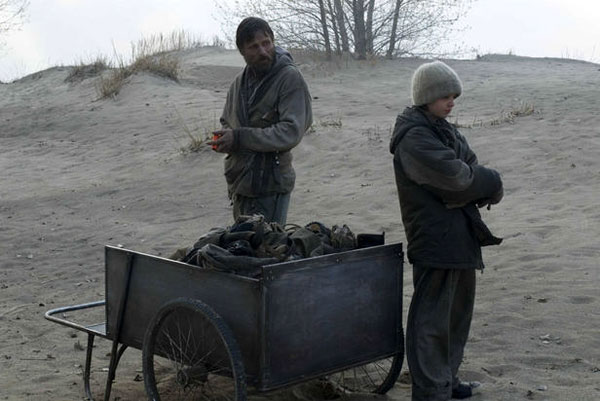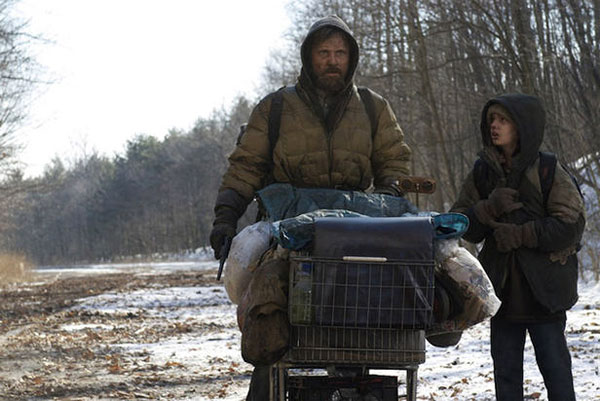One of Biblioklept’s favorite weirdos, China Miéville takes on a perceived overabundance of apocalypse movies in his article “The End, The End, The End, Etcetera” published in McSweeney’s #33, aka The Panaroma, aka the giant-assed newspaper issue (here’s a quick review: Jeesy Creezy the thing is massive. It’s like a bizarre aesthetic tchtochke that just happens to be overstuffed with all kinds of great writers writing on all kinds of great stuff. I’ve been trying to digest it on Sundays after breakfast with a few coffees but it’s too big. It’s really too much, and it’s also the sort of document that should tell McSweeney’s-haters to fuck off, or at least reveal them as kinda mean-spirited. It’s like a strange, thorough dream, where Stephen King writes your sports section and William Vollman does in-depth national reporting and Chris Ware handles the comics page. Hang on–that’s probably not a legit review. Anyway).
So Miéville basically tells Hollywood to give it a rest with all the apocalypse movies, saying that it’s not that he doesn’t love them, it’s just that there’s such a surplus as of late. “Hollywood has studied at porn’s knee,” he writes, arguing that end-of-the-world flicks like Armegeddon, The Day After Tomorrow, 2012, Wall-E, 9, The Book of Eli and Deep Impact are “sexual fantasies . . . These apocalyptes are clearly scratching various itches.” Miéville dubs the trend in disaster flicks “bukkakalypse,” arguing that these films are “obsessed not only with the world-drenching spurt itself, but with the Face of the Earth wet with its effects, stoically putting up with the soaking.” Charming. +100 internets to any soul daring enough to google “bukkakalypse.”

Miéville focuses the thrust of his article on John Hillcoat’s film adaptation of Cormac McCarthy’s novel The Road. His shorthand review kinda sorta captures my own ambivalence about the film: “Is The Road a good film? Sure. Maybe. Whatever. It depends on what you mean by ‘good.'” Miéville suggests that, “For all its portent, The Road displays a preemptive nostalgia perhaps even more pronounced than in its pulpier cousins.” Citing the father and the boy’s use of a consumerist emblem, the shopping cart, to move on and “carry the fire,” Miéville goes on to argue that,
The film, then, is structured around a punning triptych. There’s that good, lost consumption early on [the loss of a consumerist world]. Then, in the absence of commodity, there’s the terrible, Hobbesian predatory consumption of cannibalism, relentlessly stressed as an ultimate evil, rather than the relatively everyday sordidness it would almost certainly become. And refuse to eat each other? What then? Then the final iteration of the term. The father at last doubles up, coughing bronchially, and hawks up blood. In that shopless nightmare, what else is afflicting him but consumption.
Puns! Okay. As a committed Marxist or materialist (or whatever he is), of course Miéville’s gonna read The Road as an allegory of apocalypse as loss of consumerist possibility (he reads the whole Coca-Cola-drinking episode as a version of lost sacrament). Fair analysis, I guess–not one I particularly buy, but without getting into a whole ball of wax over the intentional fallacy and whatnot, I think that Miéville’s criticism that the film (and book) doesn’t recognize the Darwinian endgame of “Hobbesian predatory consumption” as “the relatively everyday sordidness it would almost certainly become” kinda sorta misses the whole point of the narrative. In my own review of the book, I argued that McCarthy’s refusal to give into the infanticide that the novel’s schema overwhelmingly predicated was hard to swallow (“cop out,” I believe, was my term), but it also seems to me that the moral impetus of the novel involves a refusal of cannibalism, an idea that to survive as a human is more than just to survive as a body. But back to film.
I didn’t particularly care for Hillcoat’s version of The Road, even though I wanted to, even though the actors were great, even though it looked great, etc. I don’t know what I didn’t like about it (okay, I thought Nick Cave’s score was both awful and intrusive, but that seems minor here). It just seemed thoroughly unnecessary and ultimately unfun. Miéville again, this time on an end-of-the-world film I can’t help but love:
The “hope” at the end of Mad Max: Beyond the Thunderdome is that the lost tribes have managed to turn on a few lights in Sydney. Such hankering for drab normality doesn’t have to be particularly convincing to do its rhetorical job. Just as well, really, because seriously? After all the splendidly coiffed and colorful shenanigans of Tina Turner’s Bartertown, is living in a partially revived Bondi really an improvement? Couldn’t we take everything in a different direction altogether? Do something new? The aspirational Good Futures of these Bad Futures are always their pasts–our present.
Although Miéville gives The Road the credit it deserves for being one of the rare apocalypse flicks that “evades this pre-post-facto nostalgia,” he also reiterates my own criticism: it’s just not that fun. And the end of the world should be fun. Miéville doesn’t mention films like Zombieland, a forgettable but enjoyable farce that posits apocalypse as freewheelin’ opportunity, or the self-aware (but not too-self-aware) pastiche Doomsday, a film that fuses every hoary apocalypse trope into 90 minutes of escapist, ass-kicking, thoroughly nonsensical fun. Neither film aspires to great art (unlike Hillcoat’s take on The Road), nor do these films aim for the catharsis-via-annihilation of blockbuster fare like Armegeddon. They’re just good fun, which is all I really want from the end of the world.



